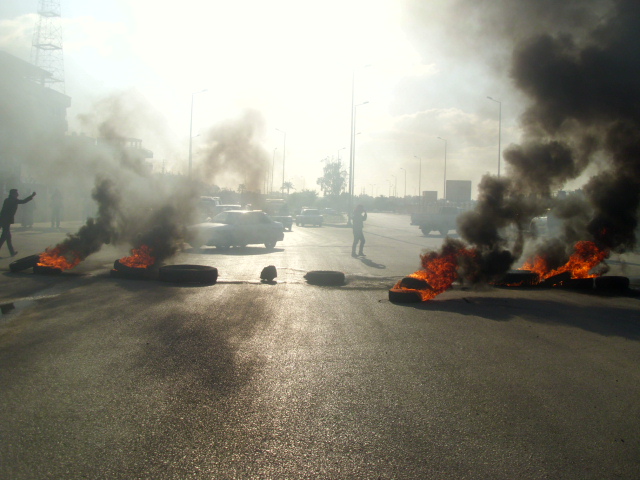CAIRO: A week ago, 22 of 49 defendants were sentenced to three to five years in prison on charges related to the April 6 strike which took place in Delta city of Mahalla. Twenty-seven others were released.
I will not comment on the verdict, but I will talk about the political dimension. What happened during the Mahalla strike was not at all an attempted coup d’etat or an plan to topple the ruling National Democratic Party, but simply stemmed from a desire to improve the economic and living conditions of scores of Egyptian families bogged down by privatization policies, suffering from poverty and hunger because of the high prices of basic commodities in Egypt.
It is true that some defendants were involved in looting and burning public property and institutions, which I condemn, but we should also admit that they did so only when they failed to secure their rights or communicate their grievances to the relevant officials.
What matters is that they did not have political demands nor did they have any serious issues with the NDP; they were only demanding a loaf of bread.
The verdicts were, however, harsh and disproportionate with whatever “crimes they had committed. Worse things than what happened in Mahalla happened in other places but those involved were not put on trial.
A few weeks ago when opposition members in Thailand took control of Bangkok airport, they forced the government to resign and form a new cabinet.
In Greece, riots and violence have marred the streets of Athens for two weeks, but we haven’t heard anything about trials or arrests among rioters and demonstrators. I don’t mean that homes should be destroyed, but rather that the government should show mercy to its people.
I believe that the Egyptian government wanted to send a political message through these verdicts, namely that it will not tolerate any future protests and that any attempt to show solidarity with workers and the April 6 youth will be confronted by full force.
These verdicts are also a sign of government weakness not power. Issuing harsh prison sentences to people who are not even politically active only means that the government is afraid of mass movements and demonstrations.
The question is: What if a political party organizes a real demonstration to demand political change or dismiss the government? Will participants be imprisoned or arrested? Will they be sentenced to three to five years, as was the case with Mahalla victims? I don’t think so.
Strange enough, since the sentences were passed, with few exceptions, no opposition parties or human rights organizations have made any moves to appeal the verdicts. We have seen no protests denouncing the verdicts, with the exception of a small demonstration organized by the April 6 youth in front of the Journalists’ Syndicate.
The government must learn to be tolerant. It must also know that had it dealt seriously with the demands of the April 6 strikers there would have been no losses. Let’s just hope that they are pardoned soon, otherwise the gap between the government and its people will continue to widen.
Khalil Al-Anani is an Egyptian expert on political Islam and democratization in the Middle East and is a senior fellow at Al-Ahram Foundation. E-mail: [email protected].

